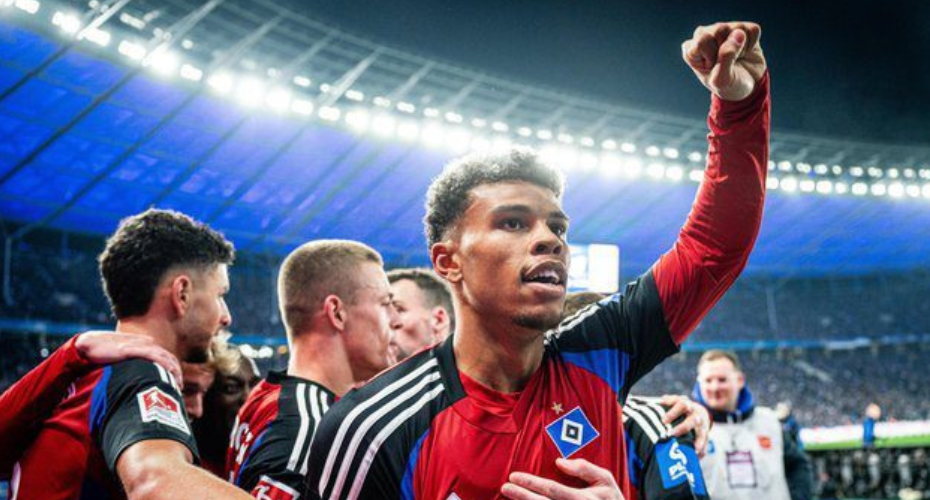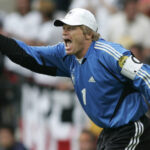The stadium shook when the fourth went in. Not just from the roar of 57,000 fans, but from the weight of something deeper — disbelief, relief, maybe even a little hope. For once, in late March, Hamburger SV didn’t look like a team unraveling. They looked like one heading for the Bundesliga.
On Saturday night, under the lights of the Volksparkstadion, HSV tore through Fortuna Düsseldorf with a 4-1 win that felt bigger than three points. The football was sharp, fast, ruthless. The crowd, so often conditioned to brace for disappointment, let go. They believed.
And yet, no one in Hamburg is talking about promotion. Not out loud. Not yet.
That’s because they’ve seen this movie before. And it usually has a terrible ending.
Since falling out of the Bundesliga in 2018, HSV have tried everything. Big names, big ideas, fresh starts, hard resets. They’ve played beautiful football, defensive football, chaotic football. None of it worked. Six seasons, six failures. A play-off defeat here, a final-day heartbreak there. A pattern emerged: start strong, stumble when it counts, crumble by spring.
Worse, their failures haven’t just been dramatic. They’ve been darkly comic. Who else loses promotion in stoppage time to Heidenheim, of all teams? Who else watches their fiercest rivals, St. Pauli, dance their way to the top of the league while they sit in fourth again?
But here we are, in 2025, and something’s off-script. HSV are top of the league — barely, sure — and playing like a team with actual direction. Which is funny, because the man steering them wasn’t supposed to be here at all.
Merlin Polzin didn’t walk into the job. He inherited it in chaos. When Steffen Baumgart was fired in November, Polzin was the unassuming assistant who stepped in, quietly, temporarily. He had no head coaching pedigree, no reputation to lean on. Just a clipboard, a pencil moustache, and years of watching HSV implode from up close.
Now, four months later, he’s still there. And HSV are playing the best football they’ve played in years.
There’s no grand mythology around Polzin. No speeches, no posturing. He’s Hamburg-born, HSV through and through, and intensely analytical. What he’s done is simple, really: made the team make sense. Balanced the midfield. Settled the defense. Unleashed the flair without losing the discipline. HSV under Polzin look like they believe in something — maybe even themselves.
But even good structure needs a focal point. And that’s where Davie Selke comes in.
Let’s be clear: Selke wasn’t signed to save the season. He was supposed to be depth. A backup striker. A former Bundesliga name whose best days seemed long gone. Then Robert Glatzel — the team’s dependable goal machine — tore a tendon in a friendly, and HSV suddenly needed Selke to be the guy.
He’s been more than that.
Selke has scored 14 goals in 17 starts. He’s bullied defenders, smashed in headers, buried penalties. He plays with a masked face (thanks to a broken cheekbone in January) and the kind of fury you only see in players who know this might be their last shot at relevance. He doesn’t just score. He leads. He demands. He celebrates like every goal is personal revenge on the football gods.
And he’s adored. When he scored against Düsseldorf and dropped to his knees, the announcer screamed his name into the night. The crowd screamed it back. Selke, the punchline-turned-hero, has become the emotional center of a team that desperately needed one.
On Saturday, when 18-year-old Otto Stange scored his first goal for the club in stoppage time, Selke — already subbed off — sprinted down the sideline to hug him like a proud older brother. This is a man who knows what it’s like to fall short, to be mocked, to be written off. Now, he’s the one holding others up.
And HSV? They’re still standing. Nine games remain, and yes, everything could fall apart again. That anxiety hums under every moment. But this spring feels different. It’s not just about tactics or form. It’s about energy. It’s about rage turned productive. It’s about refusing to collapse one more time.
No one’s daring to say it yet. But in Hamburg, the sun is out, the team is still in first place — and for the first time in years, the dream hasn’t melted.
Not yet.









